Therapy for Stress
Our stress management therapists in Cincinnati and Indianapolis are ready to help.
We Can Help You With Stress
Stress is a natural response to difficult situations. Sources of stress often involve a big change, conflict, or problems with resources. Stress can motivate us to face challenges and engage in problem-solving. However, chronic stress feels overwhelming and hard to navigate. If you notice stress impacting your daily life, health, or relationships, it’s time to get support. A therapist can help you pinpoint your stressors, resolve problems, and improve your coping. This guide explains stress and the treatments that can help you thrive.
Common Sources of Stress
Adjustment, Loss, or Transition
- Death of loved one
- Divorce or break up
- Birth of child
- Newly married
- Moving
- New health diagnosis
- Job change
Relationship
Issues
- Conflict with intimate partner
- Conflict or estrangement with friend or family
- Conflict with colleagues
- Isolation or lack of close relationships
Health and Physical Wellness Issues
- Serious illness or injury
- Health concerns
- Sleep issues
- Perimenopause / Menopause
- Aging concerns
- Body image concerns
- Weight concerns
Skill Deficits
- Communication
- Emotion regulation
- Parenting
- Resilience
- Social skills
- Time management
Internal Pressures
- Anger
- Anxiety
- Depression
- Perfectionism
- Resentment
- Type A
- Low self-esteem
External Pressures
- Caring for elderly parents
- Family responsibilities
- Financial issues
- Legal issues
- Job insecurity
- Job stress
Effective Treatments for Stress
Cognitive Behavioral Therapy (CBT)
- Understand how stressors trigger distressing thoughts and emotions, which can lead to unhelpful actions.
- Identify and challenge negative thinking patterns.
- Develop effective coping mechanisms for managing emotional distress.
- Improve self-care practices and establish healthy boundaries.
- Increase engagement in enjoyable and restorative activities.
- Enhance resilience and promote a sense of personal accomplishment.
Acceptance and Commitment Therapy (ACT)
- Increase psychological flexibility.
- Develop cognitive distancing skills to reduce the impact of negative thoughts and emotions.
- Increase mindful awareness and acceptance of difficult experiences.
- Clarify personal values and engage in valued actions.
- Improve self-compassion and reduce self-criticism.
Mindful Self-Compassion (MSC)
- Learn self-compassion practices to reframe negative self-talk & self-soothe.
- Recognize that imperfection, suffering, and failure are part of the shared human experience to reduce feelings of isolation and improve perspective taking.
- Motivate with kindness.
- Prioritize self-care vs minimizing needs.
Somatic Therapy
- Increase body and mind awareness, linking physical sensations to emotional experiences.
- Process and release physical tension through mindful movement and breath work.
- Practice resourcing to create a felt sense of safety and calm.
- Use titration & pendulation to reprocess stress/trauma without leaving the window of tolerance.
Take the Next Step with Support for Anxiety

We want to help you create an individualized roadmap (a ThriveMap!) to get CLEAR DIRECTION on how you can achieve your goals and overcome your challenges.
1
Understand the Problem
2
Choose Treatment Targets
3
Create an
Action Plan
Frequently Asked Questions About Therapy for Stress
What is it like to get help for chronic stress in the Indianapolis and Cincinnati areas?
We believe the connection with your therapist and having clear guidance about the treatment and therapeutic process are critical for a great therapy experience, that’s why we promise our clients Remarkable Connection and Clear Direction. Your unique needs and expectations matter to us as we work together to help you accomplish your goals. Here’s a snapshot of the ThrivePointe® experience.

1. Build a Strong Therapeutic Relationship
Team up with a therapist who strives to deeply understand your experience and expertly guide you through the process of making changes.

2. Understand the Problem
Develop a clear picture of your problem, including your personal history, symptoms, triggers, and the ways your life is impacted.

3. Create an Action Plan
Using evidence-based approaches, design an individualized plan to achieve your goals.

4. Implement New Skills & Solutions
Get the right balance of support and challenge to make life and relationship changes.

5. Track Your Progress To Do What Works
Make sure therapy is helping by monitoring improvements and refining your action plan.

6. Achieve Your Goals
Experience the Satisfaction of working hard to see positive changes and growth in your life!
Are you someone who is doing their best to hold everything together — yet feeling worn thin inside? Stress can quietly erode a person’s sense of identity, strain relationships, and diminish their ability to fully engage with life. We know that stress affects more than mood — it can influence sleep, focus, immunity, blood pressure, and overall health. Our therapists can help people understand what is contributing to their struggles and make changes that improve well-being.
Sometimes there is a lot you can change to reduce stress in your life, and other times there are powerful factors outside your control. Your therapist will meet you with warmth and understanding and help you expand your capacity for self-compassion, which is an important part of the work to reduce stress. Counseling for stress can help you reclaim your life and move forward with intention.
What does counseling for stress look like?
Using an integrative approach, you can address a variety of needs and factors that are contributing to unmanageable stress You’ll discuss the signs and symptoms of chronic stress, and pinpoint the primary problems that can be addressed in therapy. Your therapist will support you to work through complex factors, and difficult situations that have left you feeling stuck so you can feel supported and lighten the load of stress along the way.
- Recognize how stress shows up in body, behavior, and relationships.
- Develop personalized coping strategies.
- Strengthen emotional regulation and resilience.
- Prioritize self-care and boundaries.
- Cultivate flexible thinking & adaptability.
- Improve focus, energy, and overall functioning.
Want to Learn More About Therapy for Chronic Stress
in Ohio or Indiana?
We want to make finding counseling for stress in Cincinnati and Indianapolis easy.
To get started with a therapist, just follow these three steps:
- Find a therapist on our Team page.
- Call 833-914-4688 to make an appointment.
- Start making progress on your goals!
More ThrivePointe® Counseling Services Near Cincinnati and Indianapolis
As a practice, we value treating the whole family’s needs. So, at our various ThrivePointe® locations in Indianapolis, Greenwood, Blue Ash and Liberty Township, we can serve you. We provide adult counseling, couples counseling, child counseling and play therapy, teen counseling, family counseling and Christian counseling. Our team cares about you and wants to be a part of your thriving life. Learn more and call us today!

